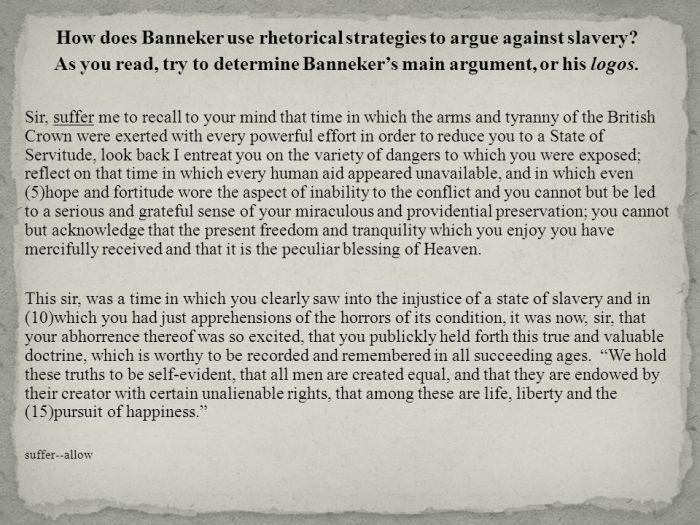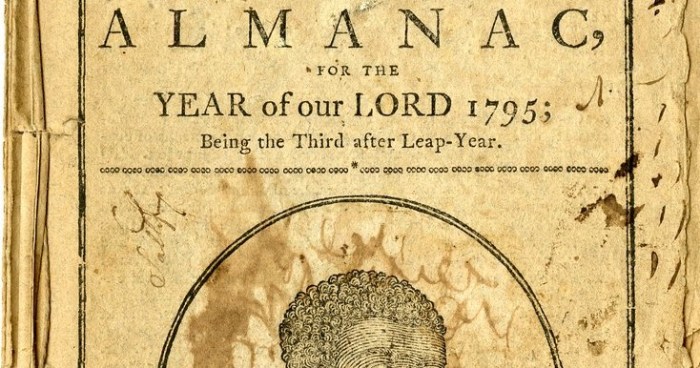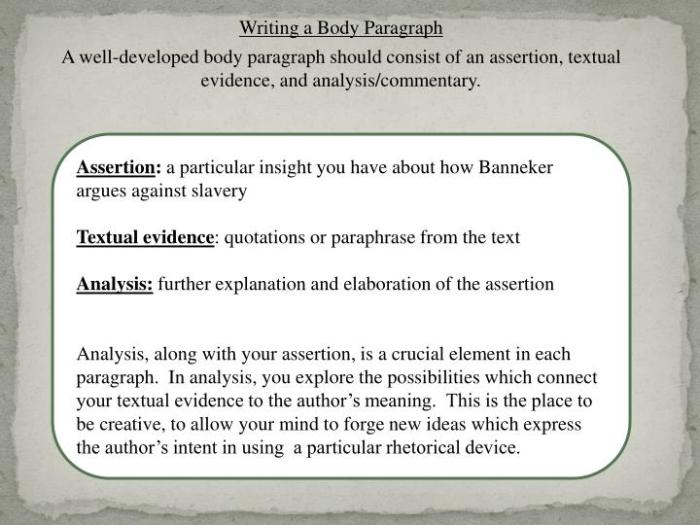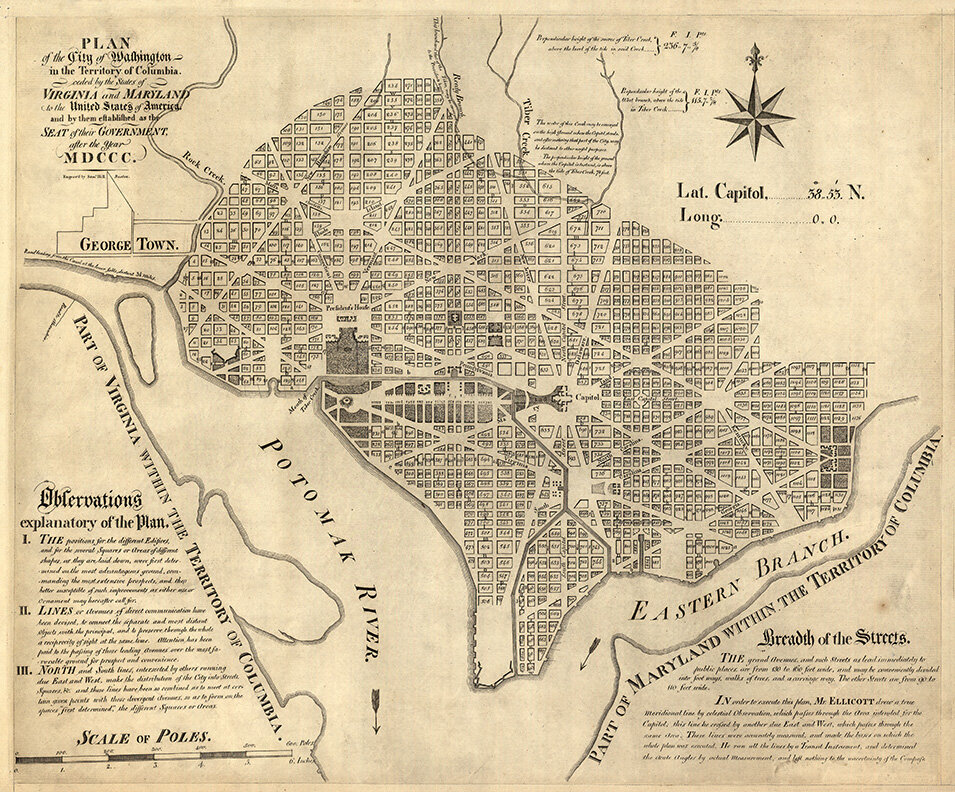Benjamin banneker letter to thomas jefferson rhetorical analysis – Benjamin Banneker’s letter to Thomas Jefferson, a seminal document in American history, stands as a testament to the power of rhetoric and the pursuit of equality. This insightful analysis delves into the rhetorical strategies, argumentation, and impact of Banneker’s eloquent plea for the abolition of slavery.
Banneker’s letter, a masterful blend of logic and passion, effectively challenged Jefferson’s views on race and human rights, leaving an enduring legacy that continues to resonate today.
Introduction

Benjamin Banneker, a self-taught mathematician, astronomer, and surveyor, wrote a profound letter to Thomas Jefferson in 1791. Amidst the turmoil of the post-Revolutionary era, Banneker’s letter eloquently addressed the glaring contradictions between the ideals of liberty and equality enshrined in the Declaration of Independence and the persistence of slavery in the newly formed United States.
The letter served as both a personal plea and a powerful indictment of the institution of slavery. It aimed to awaken Jefferson’s conscience and challenge the prevailing racist attitudes that justified the subjugation of African Americans.
Rhetorical Strategies: Benjamin Banneker Letter To Thomas Jefferson Rhetorical Analysis

Ethos and Pathos, Benjamin banneker letter to thomas jefferson rhetorical analysis
Banneker established his credibility (ethos) by showcasing his intellectual prowess and citing his astronomical calculations. He also appealed to Jefferson’s emotions (pathos) by recounting the horrors of slavery and the resilience of the enslaved.
Rhetorical Questions and Irony
Banneker employed rhetorical questions to emphasize the absurdity of slavery and its incompatibility with the principles of freedom. He also used irony to highlight the hypocrisy of a nation that proclaimed liberty while denying it to a significant portion of its population.
Historical and Literary Allusions
Banneker drew upon historical and literary references to bolster his arguments. He cited the ancient Greeks and Romans as examples of societies that recognized the inherent rights of all individuals. He also alluded to the Bible and the works of prominent Enlightenment philosophers.
Argumentation and Evidence
The Contradictions of Slavery
Banneker argued that slavery violated the fundamental principles of equality and natural rights. He pointed out that the enslaved were deprived of basic human rights, such as freedom of movement, speech, and property.
The Inhumanity of Slavery
Banneker provided vivid accounts of the physical and psychological toll slavery took on its victims. He described the brutality of slave labor, the separation of families, and the dehumanizing treatment of enslaved individuals.
The Moral Imperative
Banneker appealed to Jefferson’s moral conscience, urging him to use his influence to abolish slavery. He argued that it was a moral abomination and a stain on the nation’s character.
Tone and Language

Banneker’s tone was a mixture of respectful firmness and moral outrage. He addressed Jefferson with deference but did not hesitate to criticize his views on slavery.
The language Banneker used was eloquent and precise. He employed sophisticated vocabulary and rhetorical devices to convey his message with clarity and impact.
Impact and Legacy

Jefferson’s Response
Jefferson acknowledged Banneker’s letter but did not directly address the issue of slavery. His response focused on Banneker’s astronomical work and avoided any substantial engagement with the moral arguments presented.
Historical Significance
Banneker’s letter remains an important historical document that sheds light on the complexities of race and slavery in the early United States. It provides a powerful voice for the enslaved and challenges the prevailing racist ideologies of the time.
Literary Legacy
Banneker’s letter has been praised for its eloquence and rhetorical brilliance. It has been included in numerous anthologies and is considered a classic example of American oratory.
FAQ Summary
What is the significance of Benjamin Banneker’s letter to Thomas Jefferson?
Banneker’s letter challenged Jefferson’s views on race and slavery, asserting the equality of all humans and the hypocrisy of owning slaves while advocating for freedom.
How did Banneker use rhetorical strategies to enhance his letter’s impact?
Banneker employed various rhetorical strategies, including logical reasoning, emotional appeals, and biblical references, to strengthen his arguments and persuade Jefferson.